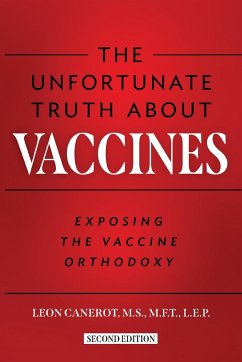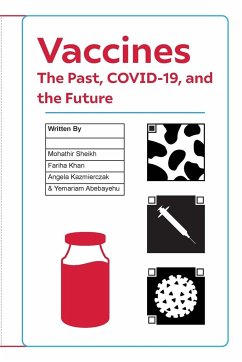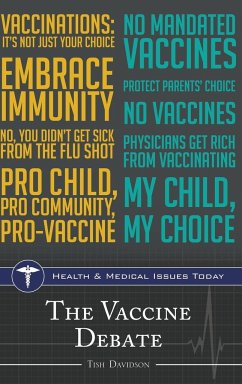Nicht lieferbar

The Genetic Puzzle of Vaccination
Unveiling the Secrets of Immune Response
Versandkostenfrei!
Nicht lieferbar
The Importance of VaccinationVaccination is a fundamental aspect of public health that has revolutionized the way we combat infectious diseases. In this subchapter, we will explore the significance of vaccination from a genetic perspective, shedding light on the intricate relationship between vaccines and our genotypes.Vaccination plays a crucial role in safeguarding individuals and communities against a wide range of diseases. By stimulating the immune system to recognize and fight specific pathogens, vaccines prepare our bodies to combat potential infections effectively. This proactive appro...
The Importance of VaccinationVaccination is a fundamental aspect of public health that has revolutionized the way we combat infectious diseases. In this subchapter, we will explore the significance of vaccination from a genetic perspective, shedding light on the intricate relationship between vaccines and our genotypes.Vaccination plays a crucial role in safeguarding individuals and communities against a wide range of diseases. By stimulating the immune system to recognize and fight specific pathogens, vaccines prepare our bodies to combat potential infections effectively. This proactive approach not only protects individuals but also contributes to the overall health and well-being of society as a whole.One of the key aspects of vaccination is its impact on genotypes. Our genetic makeup influences how our immune system responds to vaccines and the subsequent development of immunity. Certain genetic variations can affect the efficacy of vaccines, making it crucial to understand the interplay between genetics and vaccination.Through extensive research, scientists have identified specific genes that play a critical role in vaccine response. These discoveries have paved the way for personalized vaccination strategies that take into account an individual's genetic profile. By tailoring vaccines to an individual's unique genetic makeup, we can enhance the effectiveness of immunization and ensure maximum protection against infectious diseases.Moreover, vaccines not only protect individuals but also contribute to the overall reduction of disease transmission within communities. This concept is known as herd immunity. When a significant portion of the population is immunized, the spread of infectious diseases is significantly limited, protecting vulnerable individuals who are unable to receive vaccines due to medical conditions or other reasons. Understanding the importance of vaccination at the genetic level is vital for policymakers, healthcare professionals, and the general public. It helps us appreciate the value of vaccination programs, encourages further research into the genetic basis of vaccine response, and informs the development of innovative immunization strategies













